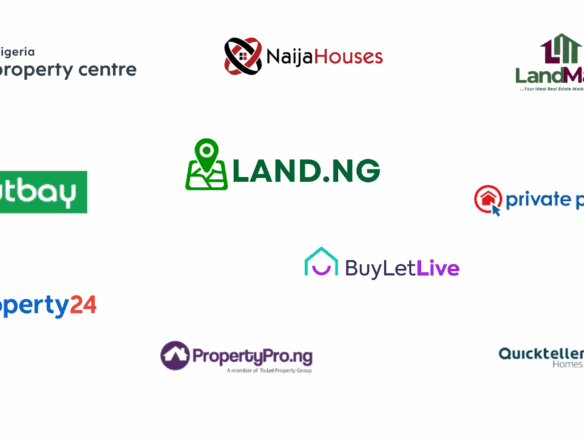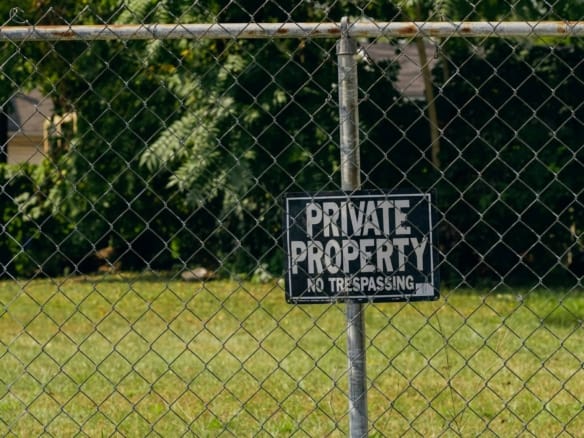Table of Contents
Real estate in Nigeria is on the rise, and it’s no longer just for the big guys. With a growing population and industries like tech and banking growing fast, Nigeria is becoming a goldmine for people looking to invest.
But let’s be honest—jumping into Nigerian real estate isn’t as straightforward as it might seem. Like every investment, you can’t just go in like a JJC and expect everything to fall into place. Getting familiar with the local market is crucial to sidestepping common challenges.
The good news is, the real estate market is evolving, and there’s now space for regular Nigerians to take part. Investing in property can help you secure your financial future and even earn passive income. The beauty of real estate is that, over time, property values tend to rise, so there’s a chance you can sell for a good profit when the time is right.
How Does Real Estate Investment Work?
At its core, real estate investing is about buying, owning, managing, renting, or selling properties for profit. The trick is to ensure the property’s value increases over time and that maintenance costs don’t eat into your gains. Different strategies can suit different goals—whether you’re looking for quick flips or long-term rentals.
How to Invest in Real Estate in Nigeria
Land Banking
One way more people are getting into the game is land banking. This means buying land in areas that are expected to grow in value, either because of new developments, urban expansion, or increasing demand. The idea is to hold onto the land until it appreciates and then sell it for a profit. Land banking is a slow burn—it might take years for the land to rise in value. But it’s a relatively low-risk strategy since land is limited and usually increases in value over time.
Direct Property Purchase
This is the classic route—buying a house, an apartment, or a commercial space. You can live in it, rent it out, or even flip it for a profit after making some improvements. It sounds straightforward, but there’s a bit more to it. You’ll need to understand the local property market, negotiate a good deal, and stay on top of any maintenance or tenant issues. Renting out a property can provide a steady income, but remember, the property’s value can fluctuate with the market.
Property Flipping
For those with an eye for potential and a bit of DIY spirit, property flipping can be an exciting venture. It’s all about buying properties that need some work, giving them a makeover, and selling them for a profit. The thrill comes from transforming something run-down into something desirable. But it’s not all smooth sailing—renovation surprises and market shifts can impact your profits. That’s why it’s crucial to have a solid plan, do thorough research, and budget carefully to make sure you come out ahead.
Commercial Real Estate
Looking to think bigger? Commercial properties like office spaces or shopping centers can be lucrative. Businesses tend to sign longer leases, giving you a steady income. However, the initial investment is usually higher, and you’ll need to manage relationships with tenants. The key here is finding the right property in a location with high demand.
Residential Development
If you have the capital and the vision, developing residential properties can be rewarding. You start with a piece of land and build homes or apartments, which you can either sell or rent out. With the rise of platforms like Airbnb, shortlet apartments and vacation rentals have become increasingly profitable, especially in tourist-heavy cities like Lagos and Abuja, increasing the demand for resident properties. Properties located in prime locations for business or leisure can fetch significant rental income, making this a viable option for those looking to earn passive income.
Joint Ventures
Sometimes, working together can unlock opportunities that might be out of reach when going solo. By teaming up with others, you can pool resources, share expertise, and tackle larger projects that require more capital and diverse skill sets. Joint ventures allow you to access bigger opportunities, but it’s important to go in with eyes wide open and legally binding agreements.
Agricultural Land Investment
Nigeria’s fertile land isn’t just for growing food—it’s also a solid investment. Whether you lease it to farmers or start your own operation, a farm land can yield steady returns. But farming comes with its challenges, environmental factors like unpredictable weather can impact yields, and having a solid understanding of agriculture is crucial. If you’re willing to put in the effort or partner with experienced farmers, agricultural land can appreciate in value while offering consistent income over time.
Real Estate Investment Trusts (REITs)
If buying property feels like a huge step, REITs might be a simpler way to dip your toes into the real estate market. Think of it as buying shares in a collection of properties rather than owning one outright. This approach lets you enjoy the benefits of real estate investment without the stress of property management. It’s a hands-off option that suits people looking for flexibility. However, keep in mind that you won’t have control over the properties, so it’s more about trusting the management to make the right moves.
Co-living or Co-Working Spaces
As urbanization continues and housing costs rise, co-living spaces are becoming more popular, particularly among young professionals and students. These shared living spaces provide a more affordable alternative to traditional rental options while offering modern amenities. Similar to it is shared office space otherwise called co-working space and hubs. Investing in or developing co-living/working spaces can provide solid returns, especially in high-demand urban areas.
Starting a Real Estate Company
For those with an entrepreneurial spirit, starting a real estate company is an excellent opportunity. A real estate business could focus on helping individuals buy, sell, or manage properties, providing consultancy or property management services. This venture could also involve real estate brokerage or property development services, capitalizing on the increasing demand for housing and office space in Nigeria.
The Upsides of Real Estate Investment in Nigeria
Investing in Nigerian real estate offers multiple avenues for wealth creation and long-term financial stability. Here’s why it’s worth considering:
Steady Cash Flow
Real estate can provide a reliable income through rent, especially in high-demand areas where rental prices often exceed supply.
Long-Term Appreciation
Property values generally go up over time, particularly in areas that are developing fast.
Diversification and Stability
Adding real estate to your investment portfolio provides a good balance, helping to offset risks from other financial markets.
Hedge Against Inflation
As living costs rise, so do property values and rents, which helps you maintain your purchasing power.
Navigating the Risks of Real Estate Investment in Nigeria
Alright, so we’ve talked about how exciting real estate can be, but let’s keep it real—there are some bumps on the road. Like any good thing, real estate investing in Naija comes with its own set of challenges. Here’s what you need to watch out for:
Economic Shifts
You know how the economy can do shakara sometimes? When there’s a downturn, property values can take a hit, and people might not be so eager to rent. That’s why it’s important to keep your ear to the ground and stay updated on what’s happening economically.
Regulatory Challenges
Dealing with property laws in Nigeria can feel like navigating Lagos traffic—confusing and frustrating. But if you stay sharp, do your homework, and get some solid legal advice, you can avoid getting caught in any legal wahala.
Infrastructure Issues
Not all areas have reliable infrastructure. Some locations still struggle with basic amenities, which can impact property values and appeal. It’s always a good idea to thoroughly assess an area before investing.
Market Volatility
The real estate market can be like the weather—sometimes sunny, sometimes stormy. Prices can go up and down, so it’s important to stay flexible and ready to adapt your strategy as things change.
Final Thoughts
Real estate in Nigeria is full of promise. With a bit of planning, some good old-fashioned research, and the right legal backing, you can turn it into a solid way to build wealth and secure your financial future. Whether you’re just starting out or you’re an experienced investor, the key is to stay informed, be ready to adapt, and enjoy the journey. After all, every big success story starts with that first step.




Join The Discussion